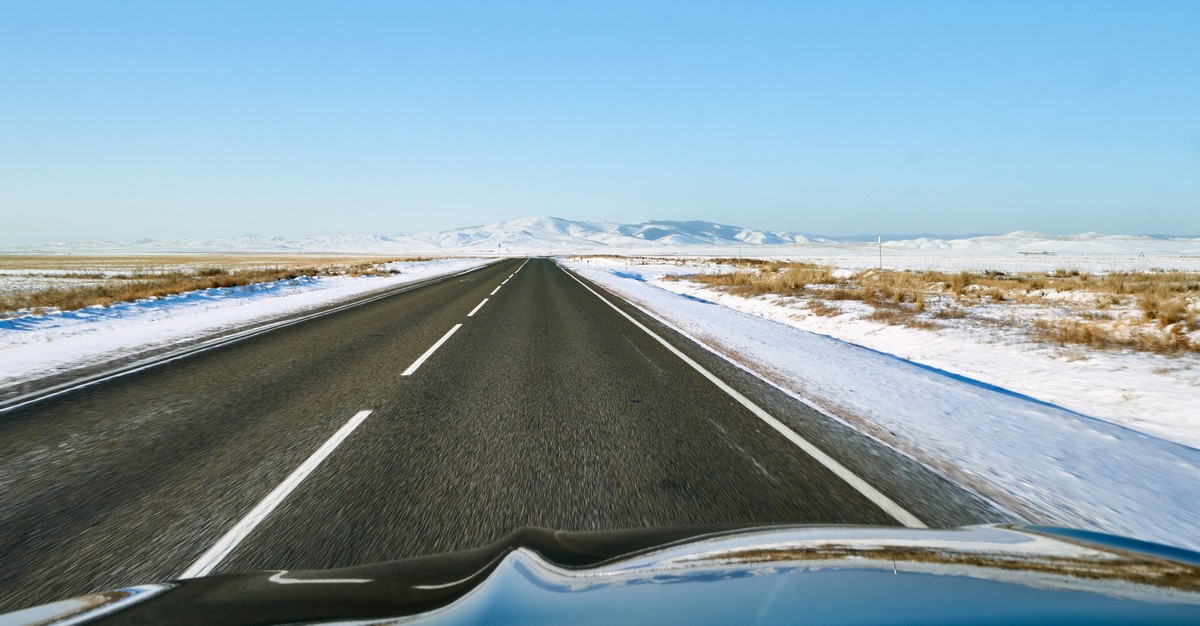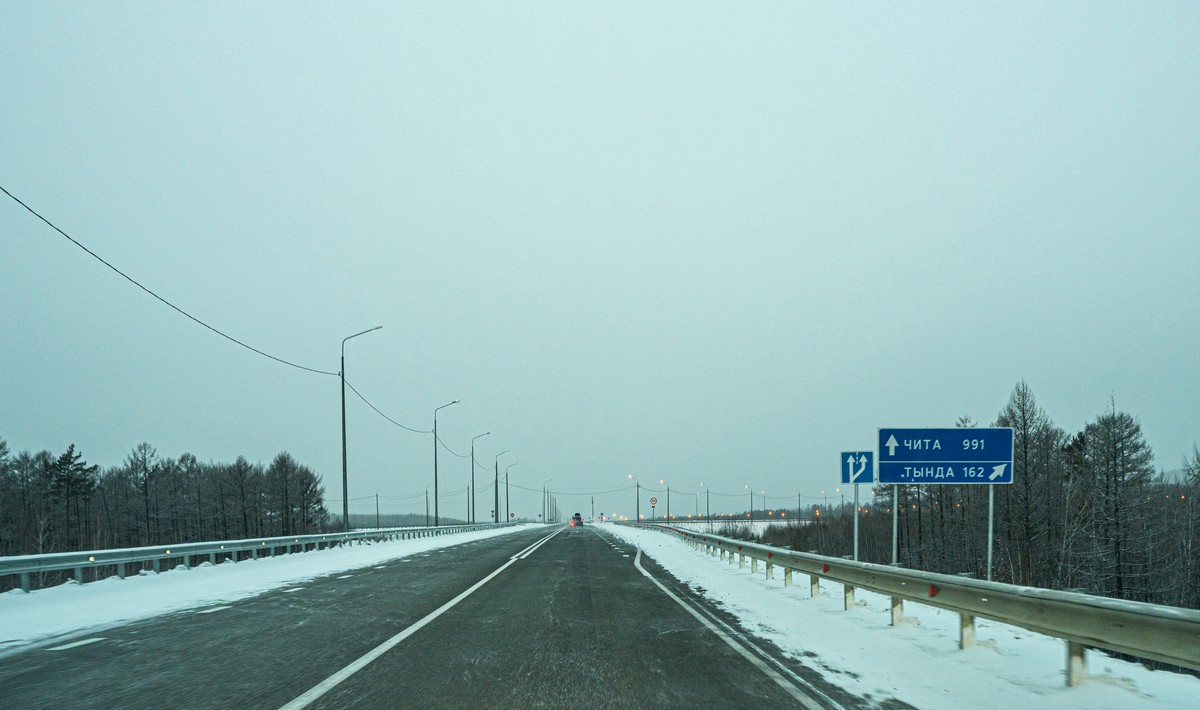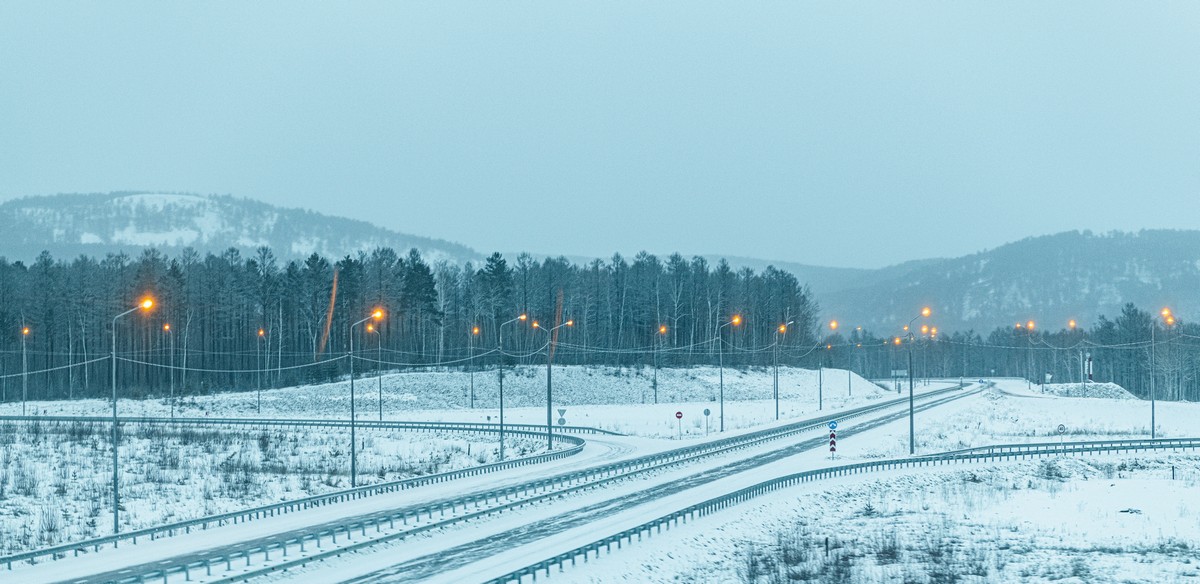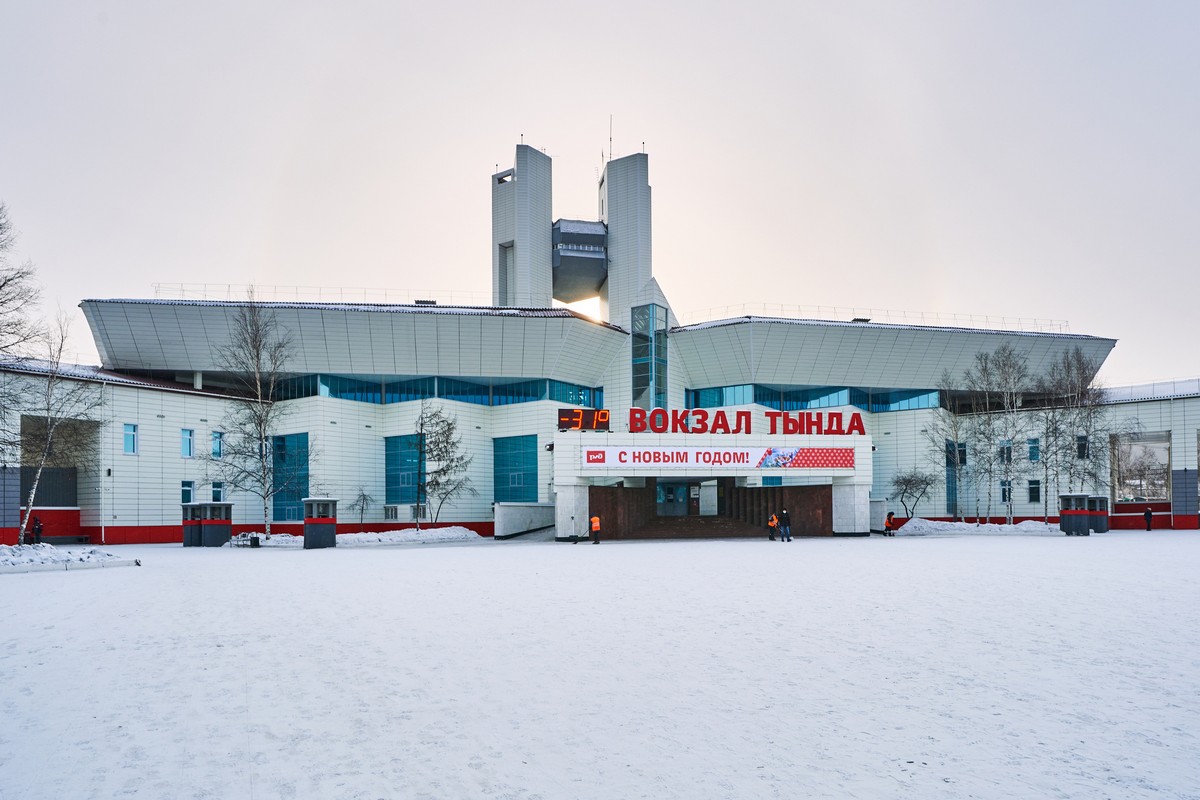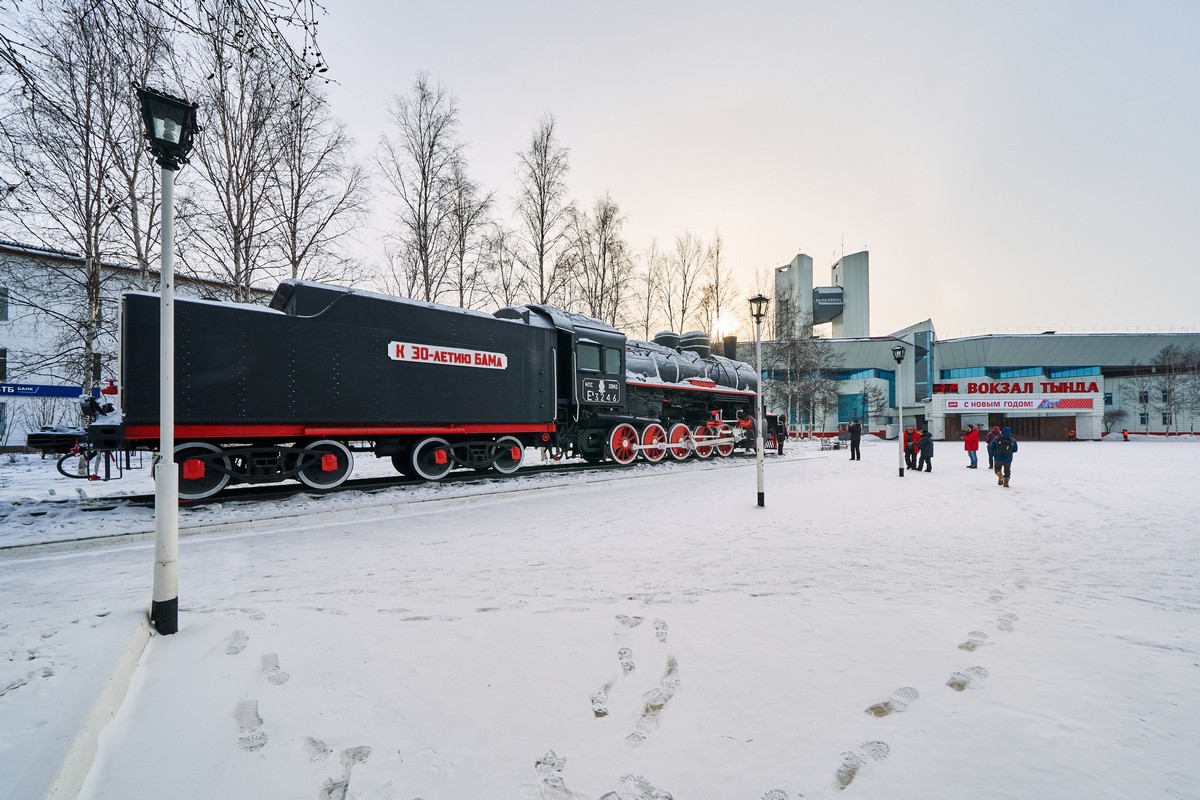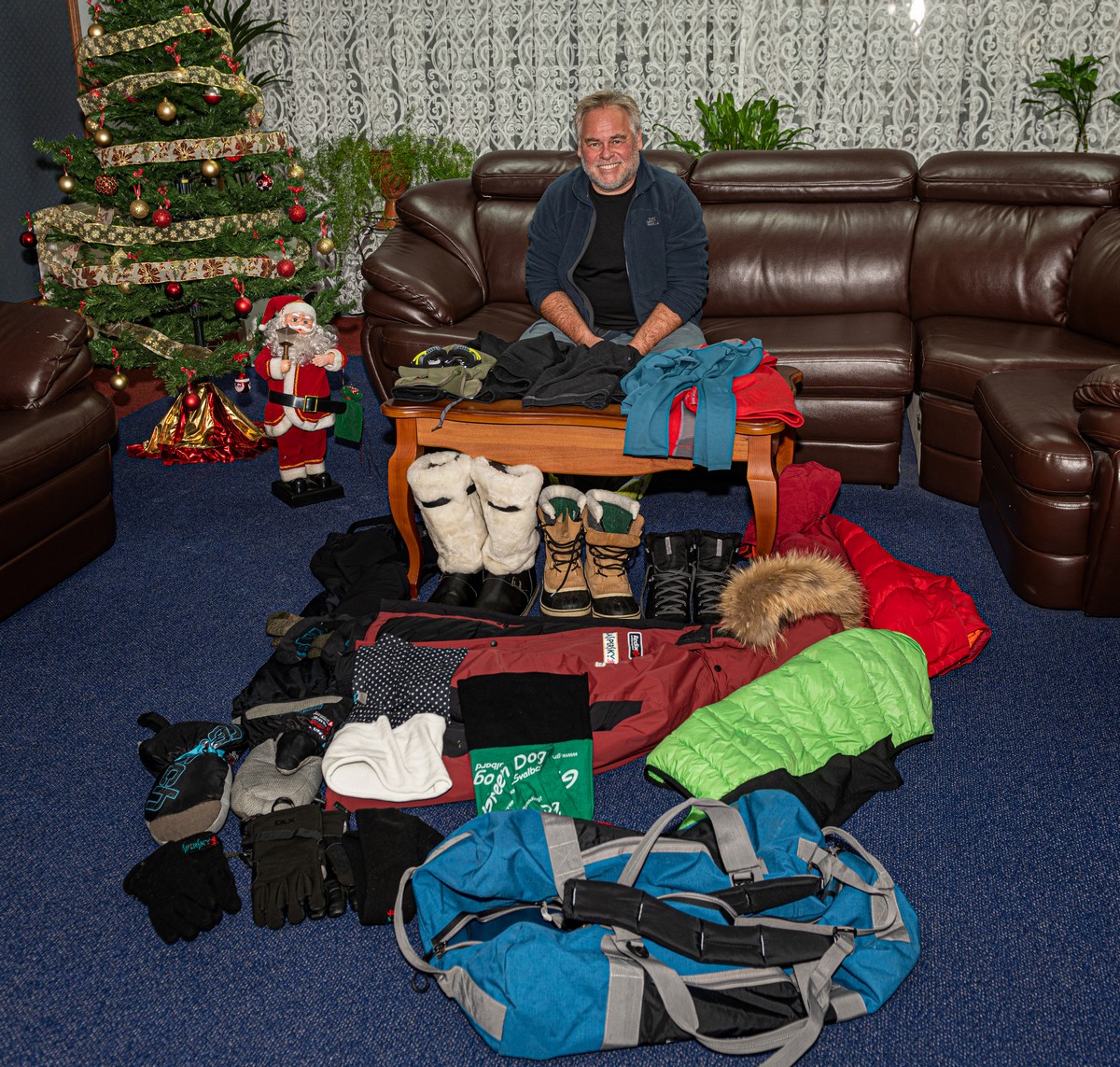When in Yakutsk, besides the museums and institutes, you need to get to have a drive over the frozen river Lena. The ‘road’ over the river links the city up to the Lena Highway, which in turn winds southward 1100km until it meets the Amur Highway, just above the border with China.
Why it is that the main road is on one side of the river, while Yakutsk is on the other is a bit of a historical mystery curiosity. A quick scan of the internet tells me that the city was founded in 1632, and the Cossacks’ first ostrog was built on the ‘correct’ bank of the river Lena. Then, 10 years later, for some reason it was transferred to the other bank – where it still stands today. It seems likely that the reason was strategic-defensive: back then there were frequent skirmishes with natives, and there’s not much better protection for a settlement than a wide (2km+!) body of water (such as the river Lena). But that still doesn’t quite explain why 300 years later the road was built on the other side. But I digress. Anyway, still today there’s no bridge crosses the Lena at Yakutsk, but in winter there’s the ‘winter road’ you can take over the river. There have been plans for construction of a bridge, but in these conditions – what with the permafrost (and, thus, perma-unstable) ground, the extreme cold, and the significant girth of the Lena – they’ve kept being put off.
But it seems folks have gotten used to it; they’ve had to! There are ferries in summer, in the winter there’s driving over the frozen Lena as I’ve mentioned already (twice!), but around about every spring – when the ice starts breaking up (so no driving thereupon), and also every fall – when it starts to ice over but it’s still not strong enough to support vehicles but too icy for the ferries to cope with, that’s it: no crossings possible at all! Apart from in a helicopter. But that’s hardly an accessible mode of transportation now is it?
The ‘winter road’ over the frozen Lena is really something, especially because it doesn’t take the shortest route across; it lasts a full 17 kilometers (following the route the ferries take in the summer, I think, shown here), and there are two lanes going in each direction on it! Just like a real highway, but it’s on a frozen river! ->

Read on…








![YOU CAN NEVER GET TOO MANY AWARDS. SEE 1ST COMMENT FOR ENGLISH ⏩
"А из нашего окна страна Австрия видна!" - практически (с). Но в этих австриях я был не смотреть из окна, а по многочисленным деловым делам, первое из которых - лично получить несколько важных наград и множество сертификатов от независимой тестовой лаборатории AV-Comparatives.
Это далеко не первая наша награда. Скажу больше - на протяжении последних десяти лет по результатам независимых тестов к нам даже близко ни один конкурент не подобрался. Но почему тогда такое внимание конкретно к этой победе? Ответ простой: густопопсовый геополитизм. В наше весьма геополитически [очень мягко говоря] непростое время... Ну, если отбросить все казённые слова, то будет, как в известном анекдоте про поручика Ржевского. В той самой истории, когда ему указали повторить свою фразу без матерщины. На что тот ответил: "Ну, в таком случае я просто молчал".
Так вот, в наше "поручико-ржевско-молчаливое время" участвовать и получить первые места в европейских тестах - это за пределами научной и ненаучной фантастики. Что в целом совпадает с одной из основных парадигм моей жизни: "Мы делаем невозможное. Возможное сделают и без нас" (с). Большими трудами и непомерными усилиями - да! Это можно! Мы заделали такие продукты, такие технологии, такую компанию - что даже в непростое время нас и в Европах знают, уважают, любят и пользуются. Ура!](https://scontent-iad3-2.cdninstagram.com/v/t51.29350-15/430076034_1096357205018744_692310533755868388_n.heic?stp=dst-jpg&_nc_cat=103&ccb=1-7&_nc_sid=18de74&_nc_ohc=XLII-tX29aoAX80SM4u&_nc_ht=scontent-iad3-2.cdninstagram.com&edm=ANo9K5cEAAAA&oh=00_AfBINCtkZ3-r_aTvdSC36JELI05V6PuBnMWs672PK3GsBQ&oe=65E63D48)



